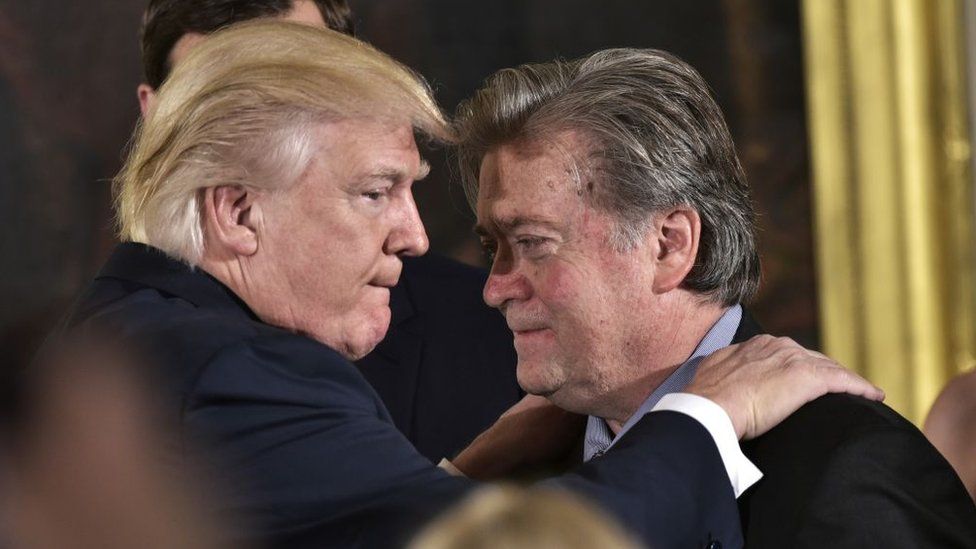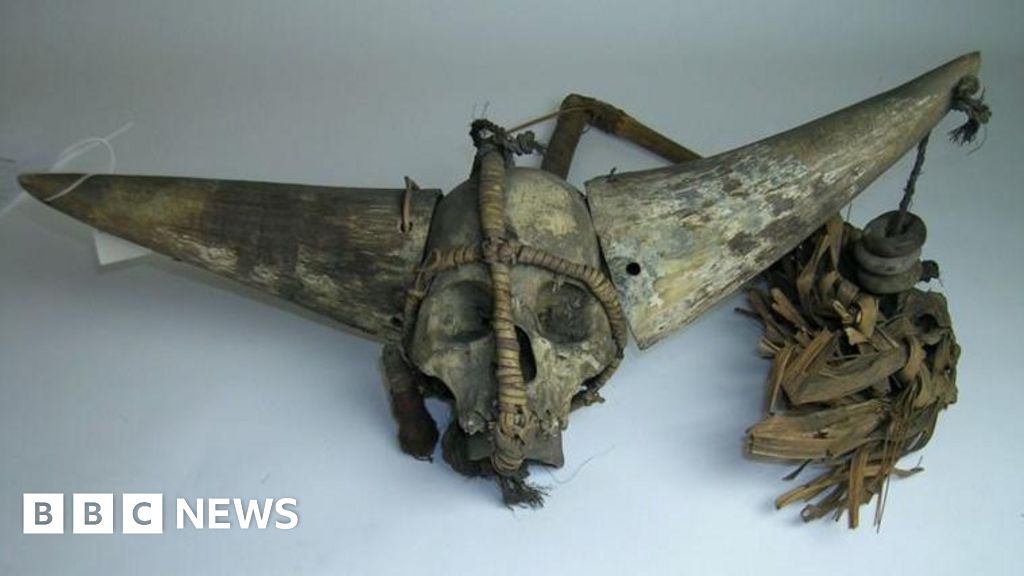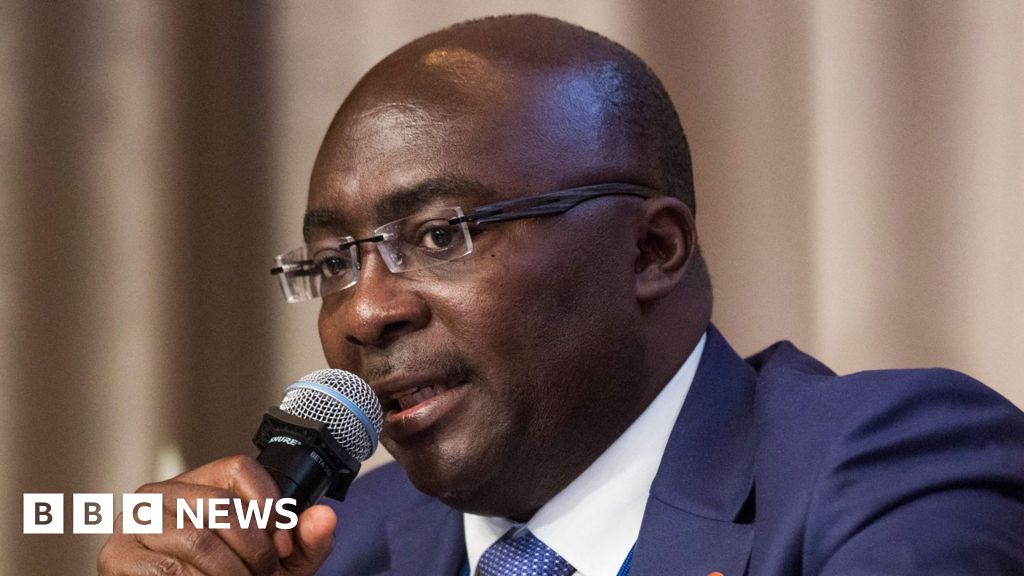ARTICLE AD BOX
 Image source, Getty Images
Image source, Getty Images
Donald Trump appointed Mr Bannon as his campaign CEO in August 2016 and, following his victory, handed him a key White House role
Steve Bannon was the driving force behind the right-wing Breitbart News website, and later became Donald Trump's chief strategist in the early stages of his presidency.
During the 2016 presidential campaign and in the White House, Mr Bannon had a direct line to Mr Trump - who seemed to be his ideological soulmate. But that came to an end when he left his post in August 2017 as their relationship began to cool.
He left the White House after months of reported power struggles with Mr Trump's son-in-law and senior adviser, Jared Kushner, as well as other high-level Trump advisers.
Mr Trump had also reportedly grown weary of press leaks and of Mr Bannon taking credit for his election victory.
Mr Bannon headed back to Breitbart, vowing to wage war on the president's opponents. "I've got my hands back on my weapons... It's Bannon the Barbarian," he said at the time.
But the schisms soon started to show. He said Mr Trump's firing of the FBI's director had been the biggest mistake in "modern political history".
He also defied the president by championing a controversial Alabama Senate candidate who crashed to a humiliating defeat against a Democrat.
The divide grew when Mr Bannon was quoted in a book as describing a meeting between Mr Trump's son and a group of Russians - an encounter that featured prominently in Mr Trump's impeachment trial - as "treasonous".
"Steve Bannon has nothing to do with me or my presidency. When he was fired, he not only lost his job, he lost his mind," Mr Trump said in a statement.
'Sloppy Steve'
Mr Bannon swiftly recanted, but the damage was done. One of Breitbart News's major financial backers, Rebekah Mercer, cut him loose and days later he stepped down.
In January 2018, Mr Trump took to Twitter to cheer the decision with a new moniker for his old ally. "The Mercer Family recently dumped the leaker known as Sloppy Steve Bannon. Smart!" he wrote.
But by August 2019, wounds appeared to have healed. Mr Trump described Steve Bannon in a tweet as "one of my best pupils" and "still a giant Trump fan".
Image source, Getty Images
Image caption,Mr Bannon, pictured at President Trump's inauguration in 2017
'We Build the Wall'
In September, Mr Bannon, 68, was indicted on charges of money laundering, fraud and conspiracy. He was accused of cheating donors to a fundraiser designed to help Mr Trump achieve his policy goal of building a wall on the US-Mexico border.
Prosecutors in New York alleged that he had lied to donors to the "We Build the Wall" project and diverted some of the money to two of his associates.
Federal prosecutors brought similar charges against Mr Bannon and the two men in 2020. But in the final hours of his presidency, and in a sign that their relationship had warmed, Mr Trump pardoned his former adviser and political confidant.
Pardons, however, apply only to federal crimes and prosecutors in New York state have pursued similar charges against Mr Bannon, who has said he is being persecuted. That case is ongoing.
The Hollywood years
Born in Virginia in 1953, Mr Bannon spent four years in the navy before completing an MBA at Harvard.
He went into investment banking and after a spell with Goldman Sachs moved into media financing, helping to get the comedy show Seinfeld, among others, off the ground.
He shifted into film production, working in Hollywood before branching out into independent political documentary-making, paying homage to former US President Ronald Reagan, former Alaska Governor Sarah Palin and the Tea Party movement.
Through this work he met Andrew Breitbart, a staunchly conservative media entrepreneur who wanted to create a site that challenged what he saw as liberal-dominated mainstream media.
When Breitbart died of a heart attack in 2012, Mr Bannon took over as head of Breitbart News and drove it forward.
Image source, Breitbart
Image caption,One of Breitbart's many controversial headlines
The site positioned itself as a populist, bellicose, conspiracy-tinged outlet for right-wing Americans disillusioned with mainstream politicians.
During the 2016 election campaign, the site was fulsome in its support of Donald Trump. At the same time, Democrats and civil rights groups were accusing Mr Bannon and his media outlet of allying themselves with white nationalists.
Mr Trump had appointed Mr Bannon as his campaign CEO in August 2016 and, following his victory, handed him the key White House role.
Mr Bannon's troubles in 2017 and 2018 delighted the Republican mainstream, which had been repeatedly assailed by Breitbart.
His legal issues continued after Mr Trump left office, and in July he was found guilty of two counts of contempt of Congress. He had been indicted over his refusal to co-operate with the congressional committee probing the events leading up to the Capitol riot.
Despite leaving the White House formally in August 2017, he is said to have been an unofficial adviser to Mr Trump at the time of the insurrection on 6 January 2021.
Bannon had denied any wrongdoing, but on 21 October he was sentenced to four months in jail and fined $6,500 (£5,833).
He won't go to jail until any appeal to the sentence is resolved - and outside the court he remained defiant, launching an attack against the "illegitimate Biden regime".

 2 years ago
16
2 years ago
16








 English (US)
English (US)